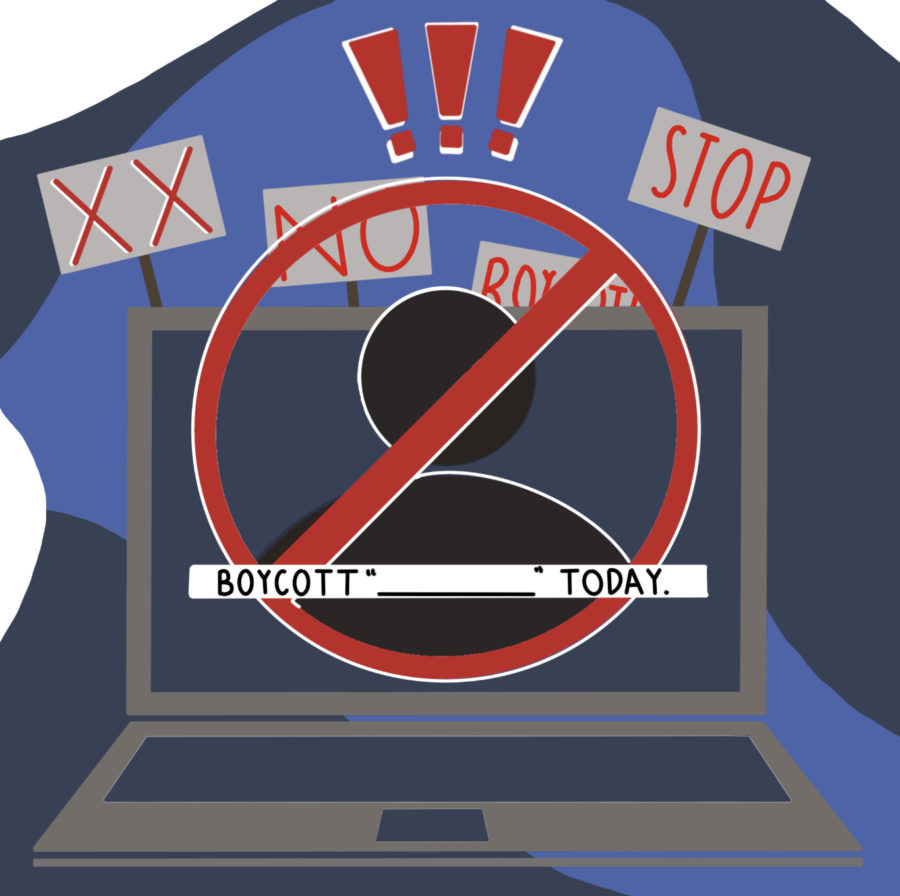Why internet boycotts don’t work
February 17, 2023
On Jan. 12, the TV show “Velma” was released on HBO Max to almost universally negative reviews. The show currently stands at a 41% critic score and a 7% audience rating on Rotten Tomatoes, which really says something about who gets to be called a “critic.” Basically everyone interested in TV shows took a turn making fun of it. Nearly every aspect about the show is horrible—the disregard to the source material, the mediocre animation, the unlikable characters and the awful writing.
Years earlier, something similar happened to Nike, the shoe company. In September 2018, Nike released a commercial featuring the anti-racist activist and football player Colin Kaepernick, whose famous kneeling during the national anthem to protest police brutality sparked discussions about the political role of sports players. When this commercial came out, conservatives got so angry that they tried to boycott Nike for, uh, collaborating with someone who thinks that racism is a problem. Putting aside the questionable motives of the boycotters, here’s the kicker: Nike’s advertising department knew beyond all reasonable doubt that this would happen. So why did they purposely incite so much negativity to their brand?
What the story of “Velma” and Nike have in common is that a tidal wave of negative attention didn’t harm them. Rather, it bolstered their brand and pushed their product into the popular consciousness. Despite the horrible reviews, “Velma” received a steady flow of hate-watchers, which made it the fourth-most watched show at the time of its release. It is now being renewed for a second season. And in the days following Nike’s ad, their revenue increased dramatically in contrast to the Dow Jones industrial average, which had fallen precipitously that week.
Whether by accident or on purpose, the phenomenon of negative attention leading to success is increasingly common. The reason why is because the phrase “there’s no such thing as bad publicity” has taken on a new life in the information age. Internet algorithms are structured so that exciting anger is much more likely to be seen than comparatively boring content that doesn’t enrage you. Now, bad publicity is the best kind of publicity.
This is all good if you’re a company seeking to make your product popular, but what if you’re trying to do the opposite? This phenomenon makes a potential boycott extremely difficult to pull off, because for every person you convince not to buy a product online, there are 10 more people who are hearing about the product for the first time because you’re loudly convincing someone not to get it.
This exact thing just happened last week with the controversial release of a game called “Hogwarts Legacy,” which, as the name implies, takes place within the “Harry Potter” world. Upon its announcement, some trans rights advocates called for a boycott of the game due to its direct financial ties to J.K. Rowling—the thought leader of a widespread hate movement against trans people. This sentiment against the game was fairly well known, but what was the result? We don’t have access to an alternate universe in which trans advocates collectively decided to do something else with their time, but I’d be willing to bet that the inadvertent free advertising helped the game much more than any faithful boycotters might’ve hurt it.
And more importantly, think about what a failed boycott looks like to someone not invested in the topic at hand. Now that the dust has settled, trans advocates look weak, and transphobia looks powerful—even if the vast majority of people who bought the game did so with no political goal. Bystanders have been trained by this incident to point and laugh at trans people for trying and failing to attack a stupid video game.
A reality we need to grapple with is the fact that boycotts organized on the internet simply don’t work. If you examine famous successful boycotts throughout history—such as the Montgomery bus boycott or the Delano grape strike and boycott—they were generally local, specific and didn’t involve the internet. More importantly, they were backed up by a central organization, like an activist group or labor union. In short, not all boycotts are useless, but ones that start online certainly are.
This, however, does not take you off the hook for unethical consumption on a personal level. The act of avoiding consumption of unethical products is still a moral virtue—though not a moral necessity. Convincing someone to not consume a product on an interpersonal level is still a good thing. You just have to be careful about advocating for large-scale boycotts online, because you have no way of knowing if you’ll do more harm than good. Being in the digital age means that we have to be wary of the effects that our internet speech has and doubly suspicious of any calls to make something irrelevant and unpopular by talking about it passionately in the middle of the public square.




